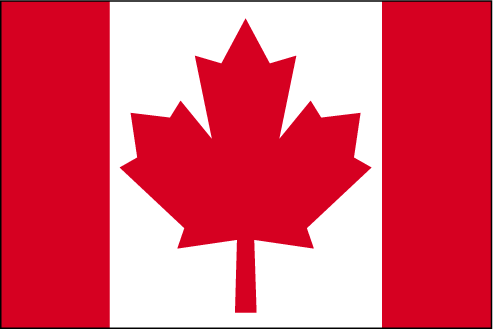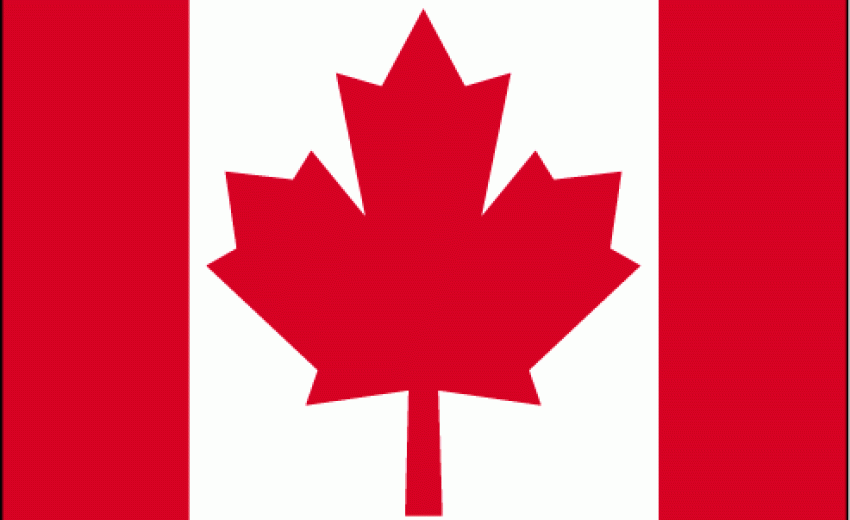Reality television lessons offer the best hope for reviving Canada’s brand.
 Oct 18, 2010: It's a well-established fact that things — especially bad or troublesome things — almost always come in threes. In other words, if you've just stretched your line of credit to cover a costly car repair, you can pretty much count on one of your kids getting expelled from school and a demotion at work.
Oct 18, 2010: It's a well-established fact that things — especially bad or troublesome things — almost always come in threes. In other words, if you've just stretched your line of credit to cover a costly car repair, you can pretty much count on one of your kids getting expelled from school and a demotion at work.
This universal rule doesn't just apply to people, either. It also applies to countries. That's something Canadians know about after a three-issue pile-up that's played out over the course of just a few days.
As is usually the case, each incident seems relatively unrelated: the dispute with the United Arab Emirates over landing slots for commercial aircraft that escalated into a diplomatic standoff; the public humiliation of Canada's defeated bid for a seat on the United Nations' Security Council; and the acknowledgment of a record $55.6-billion deficit and plans to pare back federal transfer payments to help pay it off the deficit by 2016.
This sequence of events has conspired to make it clear that, collectively, we aren't quite as tall, handsome and witty as we thought we were. It's as though we've suddenly caught a glimpse of ourselves in a mirror (in a harsh light) and are aghast at our seedy, saggy reflection.
Predictably, this unflattering and very public image has unleashed all manner of indignant finger-wagging, tongue-clucking and blame-laying. Dusty diplomats who've long been pushed from center stage are stepping forward to let us know how far we've fallen from grace and all the dire things that foretell our further decline. On the other side, of course, are the economists with their stern words about our fiscal situation and our bleak future on that front.
Despair, however, is not an option. Nor is it necessary.
If it has done one thing, reality television has taught us that focus, discipline and a clear sense of direction can transform the most abject person, property or restaurant into a gleaming paragon of curb appeal and market value. The fairy godmothers of childhood fairytales have nothing on the tough-love empowerment offered up by the likes of Tim Gunn, Stacy London and Gordon Ramsay.
The upshot? Canada needs to embrace the lessons offered up over seasons of "Extreme Makeover," "What Not to Wear," "Love It or List It," "Kitchen Nightmares," "Project Runway," "America's Next Top Model" and various other shows that have proven it's not only possible to overcome your frumpy present, it's possible to transcend your glorious(er) past.
Step 1: Be straight with yourself It's always tempting to rationalize your current slump, but it's crucial to remain as clear-eyed and honest as possible.
Canada has always had the geographic luxury of relatively splendid isolation which is sort of like living in a house with no reflective surfaces. The U.S. is totally self-absorbed and tends to view Canada with benign indifference if it thinks about us at all. With no other countries or context close at hand, it's easy to drift from a balanced diet to eating nothing but Snickers bars and ice cream.
Lesson learned: In foreign policy terms, we've run out of mileage on our once mighty international brand as peace-keeping good guys. Time to lose weight, tone up and get fit. And that requires a plan, setting priorities, establishing goals and discipline. Lots of discipline.
Step 2: Adjust your expectations to reality Denial is not your friend. It is an indulgence that slows down progress when you have an ambitious makeover agenda.
Canada needs to accept the fact that its diplomatic muscle ran to flab while the world has re-aligned. After years of inattention, we publicly tried to squeeze ourselves into the low-cut, sparkly dress of a Security Council seat. Not surprisingly, it did not fit. And that was deeply embarrassing.
This attitude adjustment also needs to inform the fiscal diet that Finance Minister Flaherty has embraced on our behalf. It's good to set deadlines and targets — like eliminating a deficit by 2016 — but it's crucial to allow for some slippage and setbacks.
For example, although stimulus spending is set to expire on March 30, 2011, the federal government has indicated that some temporary extensions could be considered. The most recent projections also assume that growth in program spending can be contained to two per cent a year despite forecasts that economic growth will at around two per cent as well. And at a time when some of the biggest provincial transfer payment agreements are up for re-negotiation, that could create a squeeze.
Lesson learned: Crash diets don't work — there are no shortcuts. To achieve and sustain change, you have to modify your behaviour overall and set realistic, carefully considered goals.
Step 3: Ask for help It can be tough to achieve big changes entirely on your own. By consulting with others, explaining your game plan and enlisting their support, the chance of bringing about lasting improvements increases exponentially.
In the case of Canada's fiscal makeover, it will be imperative to get the provinces onside — somehow. It will be just as important to resist all sorts of emotional eating during stressful periods, something that requires conviction and support.
Internationally, Canada has to be clear on what it wants to accomplish and needs to start strategically re-building a network of allies and selectively working up its game on the international stage.
